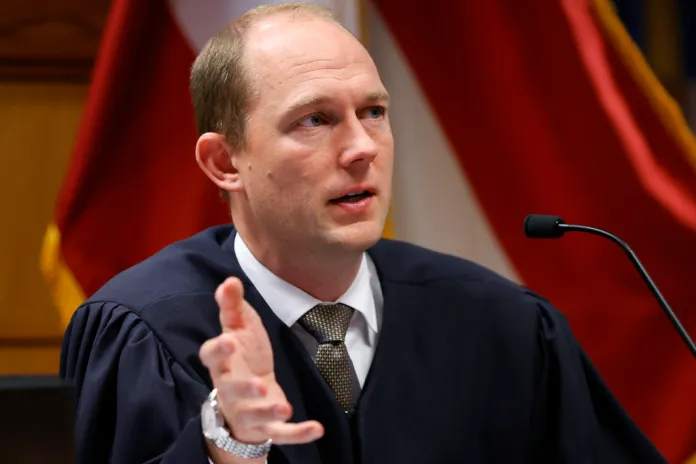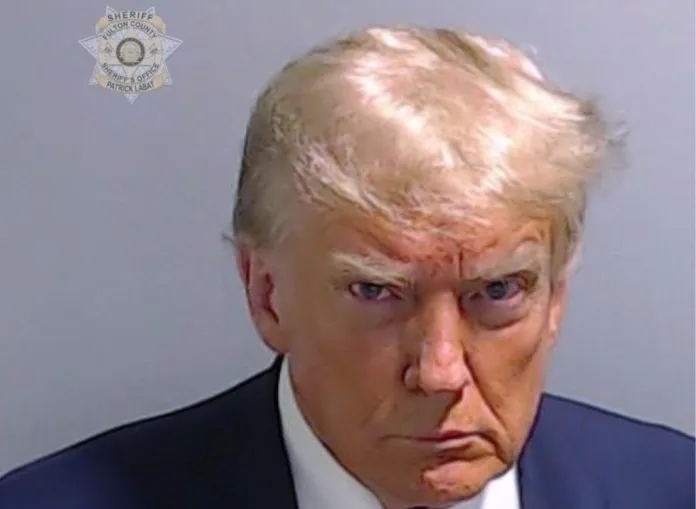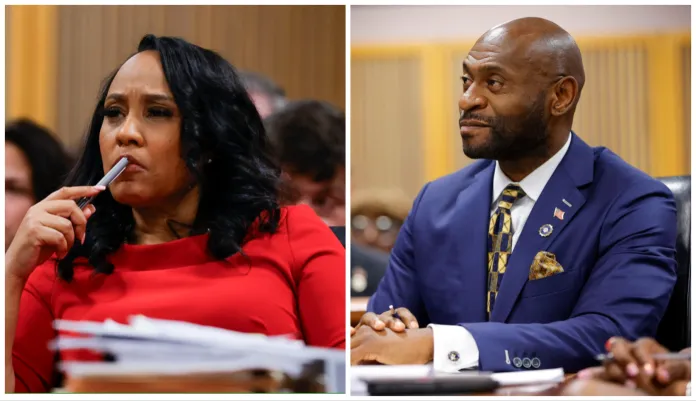The sweeping racketeering case accusing President Donald Trump and several allies of attempting to overturn Georgia’s 2020 election results will move forward under a newly appointed prosecutor. It follows weeks of uncertainty surrounding who, if anyone, would take over the prosecution following Fulton County District Attorney Fani Willis’s removal from the case.
Peter Skandalakis, director of the Prosecuting Attorneys’ Council of Georgia, appointed himself to lead the case Friday after an unsuccessful, weekslong effort to find an outside prosecutor willing to take it. Skandalakis, a former Coweta County district attorney whose council is composed of district attorneys and solicitors general from across the state, said no other prosecutor agreed to step in despite multiple attempts.
“The filing of this appointment reflects my inability to secure another conflict prosecutor to assume responsibility for this case,” he wrote in a filing in Fulton County Superior Court on Friday. “Several prosecutors were contacted and, while all were respectful and professional, each declined the appointment. Out of respect for their privacy and professional discretion, I will not identify those prosecutors or disclose their reasons for declining.”
His decision came just hours before a deadline imposed by Fulton County Superior Court Judge Scott McAfee, who said the case would be dismissed entirely if no prosecutor had been appointed by Friday morning.

“With Judge McAfee’s deadline now upon us and my review still ongoing, I have determined that the best course of action is to appoint myself to the case,” Skandalakis said. He added that the move would allow him to complete a comprehensive review and “make an informed and transparent determination” about the future of the prosecution, citing the public’s legitimate interest in its outcome and his own prior involvement in the related investigation of now-Lt. Gov. Burt Jones (R-GA).

The reassignment underscores that the lawfare surrounding Trump in the lead-up to the 2024 election has not subsided even after his return to the Oval Office. While it is widely understood that Trump is unlikely to be prosecuted while serving as president until 2029 due to constitutional and practical barriers, the case’s continuation illustrates that the criminal prosecutions that ensued after his 2020 election defeat continue to shadow his presidency.
The indictment, which resulted in the mugshot of Trump that was later used as a campaign symbol of resistance, was left in limbo earlier this year after the Georgia Court of Appeals disqualified Willis over conflicts of interest tied to her former special prosecutor, Nathan Wade.

Willis launched the investigation in early 2021 and brought the sprawling racketeering indictment in August 2023, naming Trump, Rudy Giuliani, Mark Meadows, and a slate of political aides, lawyers, and Republican electors as co-defendants. It became one of the most closely watched criminal proceedings in the country, leading up to the 2024 election.
Four defendants have already pleaded guilty: bail bondsman Scott Hall, who admitted to misdemeanor conspiracy charges; former Trump lawyer Sidney Powell, who pleaded guilty to six misdemeanor counts; Trump legal adviser Jenna Ellis, who pleaded guilty to a felony count of aiding and abetting false statements; and attorney Kenneth Chesebro, who pleaded guilty to a felony count of conspiring to file false documents. The remaining defendants still fighting charges include Giuliani, Meadows, John Eastman, Jeffrey Clark, Ray Smith, Austin Cheeley, Scott “Matt” Shafer, Shawn Still, Caroline Wooten Kutti, Harrison Floyd, Kurt Hilbert, Mike Roman, David Lee, and Robert Cheeley, all of whom have pleaded not guilty.
The landscape of the case has also shifted politically in recent days. Last Friday, the Trump administration issued federal pardons to Meadows, Giuliani, and several others who were accused of supporting efforts to overturn Georgia’s election results — a move that removed federal exposure for several figures but does not affect state-level criminal liability.
Additionally, it is possible for Skandalakis to make the decision on his own to dismiss the case, should he wish not to proceed with the prosecution any longer.
TRUMP’S 2020 ALTERNATE-ELECTOR PARDONS SEEK TO DERAIL REMAINING CRIMINAL CASES
Trump’s lead Georgia defense attorney, Steve Sadow, again called for the case to be dismissed following the announcement that Skandalakis would take it over.
“This politically charged prosecution has to come to an end,” Sadow told the Washington Examiner. “We remain confident that a fair and impartial review will lead to a dismissal of the case against President Trump.”
